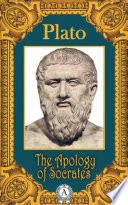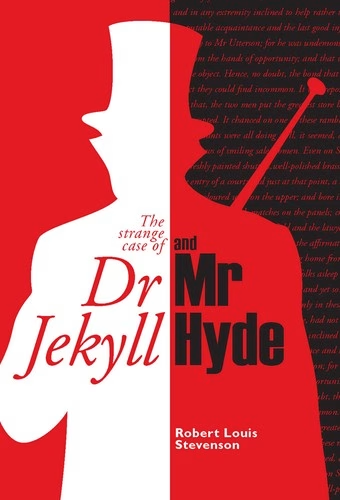Main takeaway: My life and this defense are a testament to the belief that the unyielding pursuit of virtue and truth is the highest human calling. This pursuit is not a choice but a divine mission, a service to God and to the state of Athens, which I have fulfilled by acting as a “gadfly”—persistently questioning, examining, and urging every citizen to care for their soul above all else. My wisdom, if any, lies not in knowing but in recognizing the limits of my own knowledge. I stand accused of corrupting the youth and impiety, but these charges are born of ignorance and resentment from those whose false wisdom I have exposed. I will not abandon my philosophical duty, even to save my own life, because I hold that the unexamined life is not worth living. Therefore, this is not merely a defense against legal charges; it is an affirmation of a life dedicated to the principle that justice and self-knowledge are more important than survival itself.
1. Addressing the Two Tiers of Accusation: Old Slander and New Indictment
My defense must confront two distinct sets of accusers. First, I face the “old accusers,” a nameless force of public opinion and slander that has been shaping your perception of me since you were children. This prejudice, amplified by comic poets like Aristophanes, paints me as a busybody who speculates about the heavens and the earth and teaches how to make the weaker argument appear the stronger. These long-standing rumors are more dangerous than any formal charge because they have poisoned your minds for years.
Second, I face the “new accusers”—Meletus, Anytus, and Lycon—who have brought the formal indictment against me. Their charges are an echo of the old slander, stating that I corrupt the youth and do not believe in the gods of the state, instead introducing new divinities. While these accusers are present in court, their case is built upon the foundation of prejudice laid by the first group. To properly defend myself, I must first dismantle the deep-rooted calumny before I can address the specific legal indictment.
2. The Origin of My Mission: A Response to the Oracle of Delphi
The origin of my reputation, and the enmity it has caused, stems from a divine proclamation. My enthusiastic friend Chaerephon once went to the Oracle at Delphi and asked if any man was wiser than I. The Pythian prophetess answered that no one was wiser.
I was bewildered by this answer, for I was acutely aware of my own ignorance. To test the oracle’s meaning, I embarked on a mission to find someone wiser than myself.
* The Politicians: I first approached a politician with a reputation for wisdom. After questioning him, I discovered that while he was thought wise by many, and especially by himself, he was not. I realized I was wiser than him in one small respect: I do not think I know what I do not know.
* The Poets: Next, I went to the poets. I asked them to explain passages from their own works, but they could not. It became clear that they wrote not from wisdom but from a kind of genius or inspiration, like prophets who do not understand their own words. They, too, falsely believed they were wise in all other matters because of their poetic gift.
* The Artisans: Finally, I questioned the craftsmen. They knew many things of which I was ignorant, and in that, they were wiser. However, like the poets, their skill in their own craft led them to believe they were wise in the most important matters of life, a defect that overshadowed their knowledge.
My investigation revealed the oracle’s true meaning: human wisdom is worth little or nothing. God is truly wise, and he used my name as an example to show that the wisest among men is he who, like me, recognizes that his wisdom is in truth worth nothing. This mission of exposing false wisdom, which I perform in service to the god, has left me in utter poverty and has created many bitter enemies.
3. Refuting the Charges of Sophistry and Natural Philosophy
The old slander wrongly identifies me with two groups with whom I have nothing in common: the natural philosophers and the Sophists.
* I am not a student of natural philosophy. I do not speculate on “things under the earth and in heaven.” Many of you have heard me speak and can attest that I never discuss such matters. I do not disrespect this knowledge, but I simply do not possess it. The notion that I do is a falsehood spread by my detractors and caricatured in the theater.
* I am not a Sophist. I do not teach for a fee. Men like Gorgias, Prodicus, and Hippias are skilled individuals who can persuade young men to pay for their instruction. While I consider it an honor to be able to teach about human virtue, I have never claimed to possess this ability, nor have I ever charged anyone for my conversation. My poverty is the most convincing witness to this fact.
Young, wealthy men follow me because they enjoy hearing the pretenders to wisdom being cross-examined. They often imitate me, which further angers those in power and perpetuates the charge that I am a “villainous misleader of youth.”
4. The Cross-Examination of Meletus: Deconstructing the Formal Charges
To address the current indictment, I will question its author, Meletus, directly. His accusations are careless and reveal that he has no genuine concern for the matters he brings before this court.
On Corrupting the Youth
Meletus claims I alone corrupt the youth of Athens, while all others—the judges, the senators, the entire assembly—are their improvers. This is patently absurd. In any other field, such as horse training, we recognize that only a few experts can improve the subject, while the majority tend to harm it. It is not credible that the improvement of youth is an exception.
Furthermore, I ask: which is better, to live among good citizens or bad ones? Good citizens benefit their neighbors, while bad citizens harm them. No one would willingly choose to be harmed. If I were corrupting those around me, I would be creating bad citizens who would, in turn, be likely to harm me. To do so intentionally would be irrational.
* If I corrupt them unintentionally, then I am in need of instruction, not punishment. Meletus should have taken me aside to warn and teach me, but he never did.
* If I corrupt them intentionally, I would be knowingly creating a harmful environment for myself, which is illogical.
On either view, Meletus’s charge is baseless.
On Impiety and Atheism
The charge of impiety is equally incoherent. Meletus accuses me of teaching the youth not to believe in the gods of the state but in “other new divinities.” When pressed, he clarifies his claim: he believes I am a complete atheist who thinks the sun is a stone and the moon is earth.
This is a foolish confusion. He is attributing the doctrines of the philosopher Anaxagoras to me, ideas that anyone can hear discussed in the theater for a drachma. He then falls into a direct contradiction.
1. His indictment swears that I believe in and teach about “divine or spiritual agencies.”
2. I get him to admit that one cannot believe in spiritual things (like demigods) without believing in spirits or demigods.
3. I then get him to agree that demigods are either gods themselves or the sons of gods.
4. Therefore, it is impossible to believe in the sons of gods without believing in gods.
His indictment amounts to a riddle: “Socrates is guilty of not believing in gods, but of believing in gods.” He has no real charge against me and has resorted to fabricating a self-contradictory accusation.
5. My Role as Athens’ “Gadfly”: A Divine Duty Above Personal Safety
I will not cease my philosophical practice even if you offer to acquit me on the condition that I stop.
Men of Athens, I honour and love you; but I shall obey God rather than you, and while I have life and strength I shall never cease from the practice and teaching of philosophy.
My mission is a service given to the state by God. Athens is a great and noble steed, who is slow and needs to be stirred into life. I am the gadfly that God has attached to the state. All day long, I fasten upon you, arousing, persuading, and reproaching you. I am a gift, and if you kill me, you will not easily find another like me. I urge you to care not for money, honor, or reputation, but for wisdom, truth, and the greatest improvement of your soul. Virtue does not come from money, but from virtue comes money and every other good. This is my teaching.
6. Why I Avoided a Public Life in Politics
Some may wonder why I offer advice privately but never enter the public assembly to advise the state. The reason is a divine sign, an inner voice I have had since childhood. This sign never commands me to do anything, but it always forbids me from doing what I am about to do. This voice is what has kept me out of politics.
And it was right to do so. Had I engaged in public life, I would have perished long ago and done no good for you or for myself. An honest man who fights for justice against the multitude will not save his life. I have two pieces of evidence for this:
1. The Trial of the Generals: As a member of the council, I was the only one who stood against the illegal proposal to try the generals of Arginusae as a group. I risked impeachment and arrest to side with law and justice against your demands.
2. Leon of Salamis: During the rule of the Thirty Tyrants, I was ordered with four others to arrest Leon of Salamis so he could be unjustly executed. The others obeyed, but I went home, believing it was more important to avoid doing an unrighteous thing than to avoid death. I would have been killed for my defiance had the Thirty not fallen from power shortly after.
These experiences prove that my work for justice must be done as a private citizen, not a public official.
7. A Rejection of Pity and Emotional Appeals
I will not bring my three sons and other relatives before you to weep and beg for my life. It is not because I am arrogant or unafraid of death. Rather, I believe such spectacles are dishonorable to myself, to you, and to the entire city. A man with a reputation for wisdom should not demean himself in this way.
More importantly, a judge’s duty is not to dispense justice as a favor but to give judgment according to the laws. You have sworn an oath to do so. By begging and pleading, I would be encouraging you to commit perjury, and in a trial for impiety, that would be the most impious act of all. I must inform and convince you with reason, not manipulate you with emotion.
8. The Counter-Penalty: A Reward, Not a Punishment
Now that you have convicted me, I must propose a counter-penalty to death. What do I deserve? As a poor man who has been your benefactor, tirelessly working to exhort you to virtue, I deserve a reward suitable for my service. Therefore, the just return for my actions would be maintenance in the Prytaneum—the public hall where Olympic victors and other city heroes are honored.
I am not being defiant. I am convinced I have never intentionally wronged anyone. Other penalties are unacceptable:
* Imprisonment: Why should I live as a slave to the magistrates?
* A Fine: I have no money to pay a significant fine.
* Exile: If my own fellow citizens cannot endure my words, why would foreigners? I would be driven from city to city, as the young would flock to me and their elders would drive me out.
I cannot hold my tongue, because to do so would be to disobey God. Daily discourse about virtue is the greatest good, for the unexamined life is not worth living. However, at the urging of my friends Plato, Crito, and others, who will be my sureties, I propose a penalty I can manage: a fine of thirty minae.
9. A Prophecy to My Condemners
To you who have voted to condemn me, I have a prophecy. You have killed me to escape the need to give an account of your lives. But you will not succeed. I say that after my departure, more accusers will rise up against you—accusers whom I have hitherto restrained. They are younger and will be harsher, and you will be more offended.
If you think that by killing men you can prevent criticism of your evil lives, you are mistaken. The noblest way of escape is not to silence others but to improve yourselves. This is my final word to you.
10. Death as a Potential Good, Not a Feared Evil
To you, my friends who voted to acquit me, I wish to speak about what has happened. Throughout my defense, my customary divine sign never once opposed me, even when I was saying things that might lead to my condemnation. I take this as an intimation that what has happened to me is a good, and that death is not an evil.
Let us consider what death is.
1. It may be a state of nothingness, an utter unconsciousness like a dreamless sleep. If so, it is an unspeakable gain, for eternity would be but a single night of perfect rest.
2. Or, it may be a journey of the soul to another place. If this is true, what could be greater? I could converse with the true judges—Minos and Rhadamanthus—and meet the heroes of old like Homer, Odysseus, and Ajax. I could continue my search for wisdom, examining the great figures of the past to find out who is wise and who only pretends to be. In that world, they do not put a man to death for asking questions.
Therefore, be of good cheer about death. Know for a certainty that no evil can happen to a good man, either in life or after death. My end has not happened by chance; it is clear to me that it was better for me to die and be released from trouble.
I have one last favor to ask of you. When my sons are grown, trouble them as I have troubled you. If they seem to care for riches or anything else more than virtue, or if they think they are something when they are nothing, reprove them. If you do this, both I and my sons will have received justice from you.
The hour of departure has arrived, and we go our ways—I to die, and you to live. Which is better God only knows.





